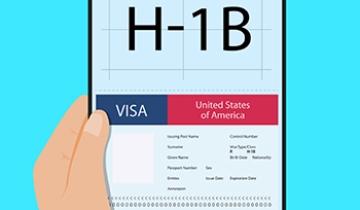Where is AI Enhancing and Where Could It Be Hurting?
As technology rapidly evolves, it continues to reshape the recruiting and human resources (HR) landscape. From automation tools to artificial intelligence (AI), recruitment tech promises to improve efficiency, broaden talent pools, and enhance data-driven decisions. However, many are concerned about depersonalization, trust issues, and unintended consequences. Is technology in recruiting a friend or a foe? Let’s examine both sides.
The Friend: How Technology Enhances Recruitment
1. Timesaving on Administrative Tasks
Gone are the days of spending entire afternoons on administrative work. Technology has streamlined many of the routine tasks recruiters once had to complete manually, such as scheduling interviews, collecting paperwork, reporting, and posting job openings. These repetitive tasks that previously consumed hours can now be done with just a few clicks. The time saved can then be spent on what really matters: the human side of human resources. Recruiters can now focus on building relationships, conducting more in-depth phone interviews, and dedicating meaningful time to candidates and employees.
2. Seamless Candidate Communication
In today’s fast-paced recruiting environment, missing a candidate’s application or failing to communicate with them at the right time can be disastrous. Technology helps track where candidates are in the hiring process, ensuring timely follow-ups and updates. By automating notifications and scheduling, recruiting teams can stay on top of communications and keep candidates engaged throughout the interview process. Tools like ChatGPT or AI-powered platforms like Microsoft Co-Pilot can even help inject creativity into standard email templates, ensuring communication feels fresh and personalized.
3. Access to a Larger Talent Pool
With more job openings than available talent, standing out in such a competitive market can be difficult. However, recruiting technology has made connecting with a broader pool of candidates easier than ever. With the help of Applicant Tracking Systems (ATS), recruiters can access new applicants and individuals who applied in the past. Many tools even allow you to automatically push new job openings to these previous candidates, ensuring that no opportunity goes unnoticed by the right person. Ultimately, tech tools help widen the net, increasing your chances of finding the perfect hire.
Technology also allows you access to candidate pools that are open to work but not applying to openings for a fee. What used to be a task that would take HR people away from their desks for networking events can now be done through tools like LinkedIn Recruiter or Indeed Resume Database. Although still one of the most time-consuming tasks in recruiting, many organizations are finding the best candidates from targeted outreach rather than waiting for the right person to come to them.
4. Data-Driven Decisions
Data management is one of the less glamorous but incredibly important aspects of HR. Technology in recruiting makes processing vast amounts of data much more manageable. By tracking and analyzing key metrics, such as time-to-fill or source effectiveness, HR teams can make informed decisions about where to allocate resources, streamline hiring processes, and optimize performance. Data allows HR professionals to focus their efforts where they’ll be most effective, improving hiring outcomes and increasing employee retention.
The Foe: Potential Pitfalls of Recruiting Technology
1. Candidate Concerns Around AI
As recruiting tools become more tech-dependent, it’s crucial to consider how candidates perceive these advancements. With a workforce that spans four generations, there is a wide variety of understanding and comfort levels with AI in the recruiting process. Many candidates still want reassurance that their applications are reviewed by human eyes, not AI. Too much automation can make candidates feel like they’re being judged by a robot, and they may lose confidence in the process. Personalization at each stage of recruitment – even if it’s a simple, individualized email response – can make candidates feel more seen and valued.
2. Candidates Using AI Against Us
The rise of AI-powered job search bots has introduced new challenges for recruiters. Candidates are using these tools to streamline their applications, which creates an issue of accuracy and accountability. When a bot completes an application, there’s a risk that incorrect information may be submitted – who is responsible for those errors? Even more concerning is the use of AI in interviews. Candidates have begun using AI-driven assistance during phone or video interviews to generate answers, manipulate their voice, or even have AI conduct the interview for them. This growing trend forces hiring teams to be vigilant and trained in identifying when an applicant may not provide authentic answers.
3. When to Trust and When to Verify
While technology can automate the verification process, it’s crucial for companies to decide when to trust candidates and when to dig deeper. Companies are now investing heavily in training for their hiring teams to conduct behavioral-based interviews that probe deeper into a candidate’s qualifications and past experiences to verify the information provided. Additionally, the shift away from drug testing in many states due to legislation has made background checks less comprehensive, leading organizations to place greater emphasis on employment and educational verifications. While technology can help streamline the process, combining tech tools with human judgment is essential to ensure you get the complete picture.
Technology in recruiting can certainly be a powerful ally, offering time savings, improved communication, access to larger talent pools, and data-driven insights. However, it’s essential to navigate its use carefully to avoid losing personal touch, alienating candidates, or facing unforeseen challenges such as AI manipulation. Striking the right balance between human interaction and technological assistance is key. By embracing the benefits of technology while remaining mindful of its potential drawbacks, recruiters can leverage the best of both worlds and create an efficient and human-centered hiring process.
As the world of HR rapidly evolves, are you staying current with all the new tools and possibilities in your recruiting process? MRA is a great resource for sourcing your next talent in a timely and efficient manner. Learn more about MRA’s recruiting services and how we can help your organization.







